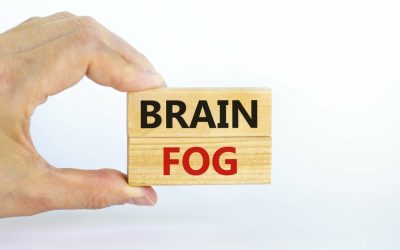Meanwhile, seek advice from a substance abuse counselor or family therapist about how to get your loved one into aresidential alcohol rehab facilityor an intensive outpatient program. Medication-assisted treatment is an essential component in the recovery journey for those dealing with substance use disorders, especially in cases of opioid and alcohol addiction. MAT combines specific medications with counseling and behavioral therapies to tackle the physiological and psychological aspects of addiction. Continued care in residential or outpatient settings or both is often needed to sustain abstinence and promote long-term recovery. Across settings, a course of AUD treatment is likely to be measured in months, not days or weeks.
To choose the right alcohol addiction program, assess your individual needs, research available treatment options, and ensure the program aligns with your recovery goals. It ensures that the treatment aligns with your specific needs and circumstances. Below is a list of some of the providers who are typically what is Oxford House involved in alcohol treatment and the type of care they may offer. Three medications are currently approved in the United States to help people stop or reduce their drinking and prevent a return to drinking.
What Factors Determine the Most Suitable Type of Alcohol Addiction Program?
Evidence-based guidelines can assist doctors with choosing the right treatment options. These guidelines help evaluate a patient’s clinical needs and situation to match them with the right level of care, in the most appropriate available setting. For more information on evidence-based guidelines visit Addiction Medicine Primer.
- For example, withdrawal symptoms are not specified for inhalant use.
- In recovery, they may need support keeping up with chores or making nutritious meals.
- These live-in facilities afford you stability and support as you learn relapse prevention strategies and get psychosocial treatments, such as group counseling or one-on-one sessions.
- The different treatment approaches—behavioral healthcare, medications, and mutual support groups—share similar goals while addressing the varied neurobiological, psychological, and social aspects of AUD.
Treatment Can Be Life Changing. Reach out today.

Alcoholics Anonymous® (also known as “AA”) and other 12-step programs provide peer support for people quitting or cutting back on their drinking. Combined with treatment led by health care providers, mutual-support groups can offer a valuable added layer of support. Under the Affordable Care Act in the United States, substance abuse treatment must be covered under ACA insurance plans. ACA plans also can’t disqualify you for having a pre-existing substance use disorder or cap spending on addiction treatment. Many private medical insurance providers alcoholism treatment program and options also offer addiction treatment coverage to varying degrees. Detoxification, often the first step in addiction treatment, plays a critical role in achieving sobriety.
- Medical detoxification is used to safely manage withdrawal symptoms under professional supervision.
- Most importantly, approach your loved one with compassion (rather than judgment) for what they’re experiencing, and listen to their needs.
- Alcohol-related problems—which result from drinking too much, too fast, or too often—are among the most significant public health issues in the United States.
- During inpatient treatment, patients admit themselves into a controlled environment to address SUDs, co-occurring mental health conditions, and other behavioural addictions.
Professional therapy, done online
IOPs are as effective as inpatient treatments for most individuals, leading to significant reductions in alcohol consumption and related issues. Partial hospitalization drug treatment programs provide a more intensive level of outpatient care than an IOP. These programs are best suited to people who need to attend an outpatient rehab program but also have psychiatric and medical conditions that require additional support and medical supervision. Typically, a person spends at least 20 hours a week attending a PHP program and has access to medical, psychological, psychiatric, toxicological, and emergency services.
Mental Health Treatment
Many alcohol rehab centers also offer variousaftercare optionsand recommendations to help clients maintain their sobriety. Alcohol rehab includes treatment programs that cover a variety of approaches to managing alcohol use disorder and overcoming addiction. Different treatment options cater to different people based on your unique needs, such as how long you’ve been struggling with your alcohol addiction and how severely it’s affecting your life. Alcoholics Anonymous (AA) is a well-known 12-step programme that provides peer support for people looking to quit or reduce their drinking. The 12 steps are the core of the AA programme, offering a personal recovery journey from alcoholism. AA is often combined with treatment led by healthcare providers, including behavioural treatments and medications.

How Long Does Alcohol Rehab Last?
Whether you are seeking intensive outpatient care or simply need guidance on your mental health journey, we are here to help. Based on clinical experience, many health care providers believe that support from friends and family members is important in overcoming alcohol problems. But friends and family may feel unsure about how best to provide the support needed. The groups for family and friends listed in the “Resources” section may be a good starting point. When seeking professional help, it is important that you feel respected and understood and that you trust the person, group, or organization to help you.
How to find a center for substance misuse treatment
The one that’s right for you depends on your situation and your goals. Many people find that a combination of treatments works best, and you can get them together through a program. Some of these are inpatient or residential programs, where you stay at a treatment center for a while.

- Outpatient detox programs may include individual and group counseling, motivational enhancement, family therapy, and educational groups.
- Therefore, outpatient drug rehab is often recommended for those with less severe addiction issues.
- This system provides a ‘whole-person’ approach to substance use disorders like alcoholism.
This form of treatment can be done at a doctor’s office or via telehealth appointment. Overcoming an SUD is not as simple as resisting the temptation to take drugs. Recovery may involve medication to help with cravings and withdrawal as well as different forms of therapy. In support of improving patient care, CME/CE activities offered have been planned and implemented by the Postgraduate Institute for Medicine and NIAAA.
Does Insurance Cover Alcohol Addiction Programs?
In Florida, a family member can keep their loved one in addiction recovery for up to 60 days, whereas Connecticut can provide temporary detention between 30 and 180 days. People suffering from alcohol addiction often experience life-altering consequences.1,2,3 Fortunately, it’s possible to treat drug or alcohol addiction at a dedicated facility. Stopping drug use is just one part of a long and complex recovery process.
